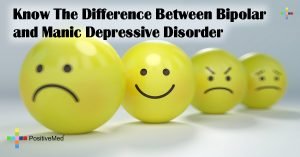
Type 2 diabetes, a prevalent global health concern, is often linked to obesity and insulin resistance. Managing or even reversing this condition is a priority for many. While lifestyle changes, including low-calorie diets, have shown promise, their sustainability and suitability for all patients remain topics of debate. In this exploration, we delve into the intricacies of low-calorie diets, their impact on diabetes, and the challenges individuals might face in adopting and maintaining such dietary strategies.
Understanding the Relationship Between Diet and Type 2 Diabetes:
Type 2 diabetes is intricately connected to weight-related factors. The inability to produce or effectively use insulin is often exacerbated by obesity. Consequently, lifestyle modifications, especially dietary changes, play a pivotal role in diabetes management. Recommended diets emphasize balanced consumption of vegetables, fruits, protein, whole grains, dairy, and healthy fats. Specific diets like DASH, Mediterranean, and paleo have shown positive effects on type 2 diabetes management.
Decoding Low-Calorie Diets:
A low-calorie diet typically restricts daily intake to 1,000-1,500 calories, creating a calorie deficit that promotes weight loss. This approach aims to decrease fat reserves, leading to improved insulin sensitivity and glucose control. While individual calorie needs vary, consulting a healthcare professional is crucial before embarking on such a diet.
The Mechanism: How Low-Calorie Diets Impact Diabetes:
Low-calorie diets, by reducing adipose tissue mass, lower free fatty acids in the bloodstream, enhancing liver metabolism and insulin responsiveness. Decreased insulin resistance positively influences blood glucose and lipid levels, offering a potential route to diabetes remission.
Evidential Support for Diabetes Remission through Low-Calorie Diets:
Several studies indicate that low-calorie diets can induce diabetes remission. Notably, the Twin Cycle Hypothesis emphasizes liver fat reduction and improved insulin response. Real-world studies support this hypothesis, with sustainable remission achievable if weight regain is prevented.
The Caveats and Challenges:
While low-calorie diets show promise, they aren’t universally applicable. Individuals who aren’t overweight or have complications may not benefit significantly. Moreover, maintaining such diets in the long term poses practical challenges. Social, cultural, and economic factors, along with psychological and physiological considerations, impact sustained adherence.
Sustainable Nutrition: A Holistic Approach:
For people with diabetes, decreasing processed sugar, incorporating nutrient-dense foods, and working with registered dietitians are beneficial. Sustainable dietary patterns like the Mediterranean diet, emphasizing healthy proteins, fiber-rich carbohydrates, and fats, offer satiety and diabetes management without extreme calorie restrictions.
Low-calorie diets present a potential pathway to diabetes remission, underlining the complex relationship between diet, weight loss, and insulin sensitivity. However, their long-term viability and applicability to diverse populations raise valid concerns. A holistic approach, considering individual needs, preferences, and socio-cultural contexts, ensures sustainable and effective diabetes management. Education, support, and informed decision-making empower individuals to make choices aligning with their overall well-being, fostering a balanced and healthier life despite the challenges of diabetes.





